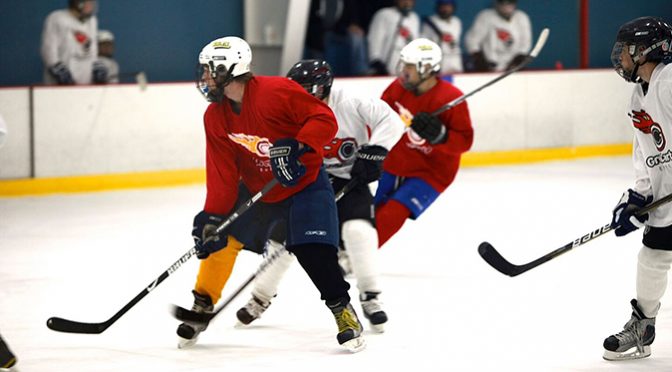13
June
Are You A Big Time Player?
Posted by Greg Carter

Big game players combine their talent and drive to be game changers.
The Stanley Cup Finals is a great time of year. As Wayne Gretzky summed it up in a recent interview “You know that you are in a special place when you look at the out of town scoreboard and there are no games being played.”
Other than the one you are in of course, which at this time of year means only one thing, the Stanley Cup!
There is no bigger stage in hockey than the Stanley Cup, when everything is on the line during an awesome seven game series. It’s the culmination of the season and the playoffs, and the game is being played at an entirely different level. The excitement and adrenaline is at its peak.
So what are some of the key factors in managing all of the stress, excitement and emotions and stepping up and being a big time player in a big time situation? Here are some common traits of big time players that I’ve seen over the years.
• As the games and the stakes rise, so too does the play of big game players. Big game players have the innate ability to keep bringing the energy and leadership that it takes to get the job done. In clutch situations these are the players that are ready and prepared to make it happen. And often times do make it happen.
• Big game players are those that WANT to be in the ice in overtime and in key situations. They want the puck on their stick, they want to be out there playing great defense to create an offensive opportunity. Big time players have the talent, confidence and determination to make it happen. They are only thinking one thing, not IF we are going to win, but HOW we are going to win. And they want to be out there for every shift to make it happen.
• As the old cliché goes, “Hard work only comes before success in the dictionary.” Big game players know this, and understand that in order to be successful in that one defining moment, they have to train hard to get there. They shoot pucks. They lift weights. They practice and train with a purpose and with one goal in mind: converting the opportunity that they get to win the big prize. They know that they may only get one chance, and in that moment they know it’s their time to shine.
All players dream of being in the championship games at all levels. And as you watch the Stanley Cup and realize what it means to the best hockey players in the world to be playing for the top prize, you quickly understand that it takes a special player to rise to the occasion and be a big game player.
We hope the Stanley Cup Finals inspired you to train hard this summer, and that you are successful in your very own big games!



 Subscribe
Subscribe Subscribe
Subscribe




